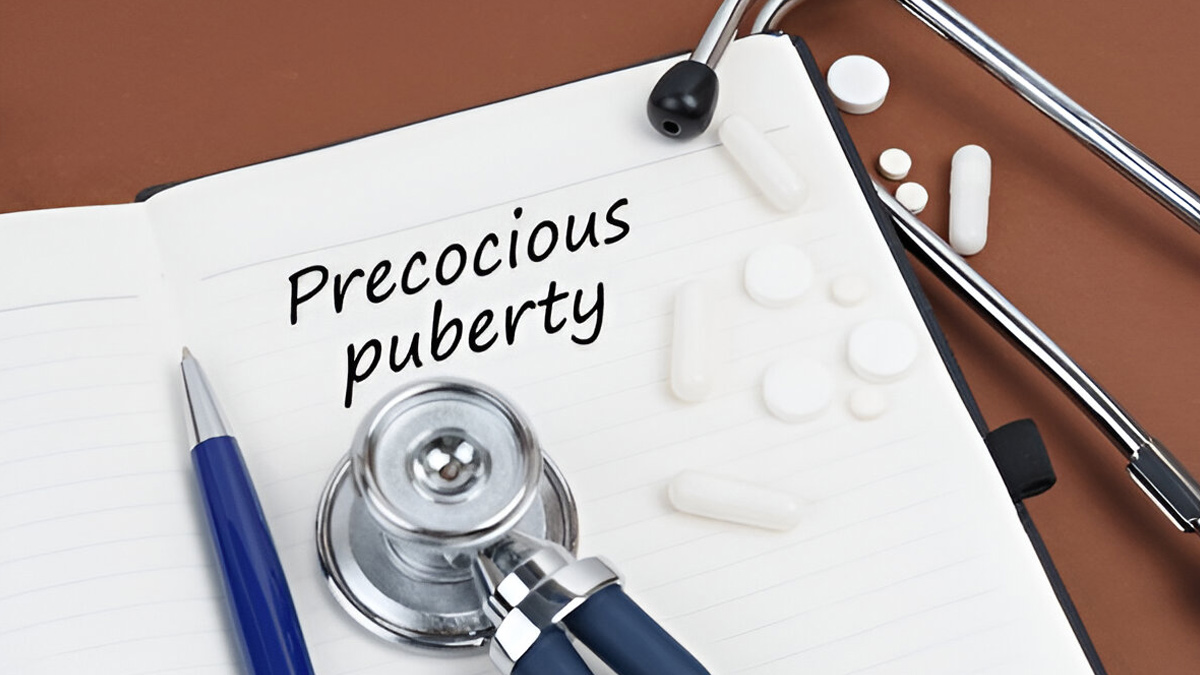
“I often meet parents who walk in worried because their seven- or eight-year-old is showing changes they expected only in their teenage years. A little breast development, new body odour, hair growth in odd places—it catches families off guard. What used to be unusual is turning into something we see fairly often in cities,” said Dr Vittal Kumar Kesireddy, Consultant and In-Charge, Department of Paediatrics, CARE Hospitals, Banjara Hills, Hyderabad.
Table of Content:-
He spoke to us in detail about why early puberty cases are increasing among urban children and what factors are contributing to this shift.
When Is It ‘Early’?

“In girls, puberty normally starts around age 10 or 11. Boys usually begin a year or two later. If these changes appear before age 8 in girls or before age nine in boys, doctors call it early or precocious puberty. Today, it's not uncommon to see signs at age six or seven, which naturally raises concerns,” said Dr Kesireddy.
Also Read: What is Precocious Puberty? Know Its Causes, Symptoms, Treatment and Risks
What Could Be Driving This Trend?
Weight Gain and obesity

“Extra body fat doesn’t just sit there; it produces hormones that send signals to the brain. This can trigger puberty earlier than expected. With children eating more packaged food and moving less, weight has become one of the strongest factors,” said Dr Kesireddy.
In Qufu, China, a school-based study found significantly higher rates of precocious puberty among overweight or obese children, especially girls—with prevalence as high as 35% in obese groups versus just 4% in normal-weight peers. Urban children showed higher prevalence than suburban ones.
Chemical exposure
Plastics, pesticides, and even some cosmetics release substances that behave like hormones. These ‘endocrine disruptors’ slip into the body in small amounts, day after day. Over time, they may confuse a child’s hormonal system.
Screens, Stress, and Adult Content
Many children spend hours online. They stumble upon material meant for older audiences, and that shapes the way their brains regulate hormones. Lack of sleep, pressure from studies, and less outdoor play only add to the mix.
Other Influences
Genetics play a role—some families naturally see puberty earlier. But urban factors like poor air quality and processed diets often push that timeline forward even more.
Also Read: Is Chest Pain During Puberty Normal? Things to Know About Breast Development Stages
Why Parents Shouldn’t Brush It Off
“Some think it’s no big deal if their child grows up a bit faster. But early puberty has real consequences. Children may stop growing taller sooner, leaving them shorter as adults. Some girls get their first periods while still in primary school. It often leaves them anxious or embarrassed, because the body is moving ahead while their emotional growth takes time. That gap can make them lose confidence,” explained Dr Kesireddy.
What to Watch For
Parents should keep an eye on:
- Breast changes in girls younger than eight
- Testicular or penile growth in boys before nine
- Sudden height spurts, acne, or pubic hair well before the teenage years
A paediatrician may recommend blood tests or scans to check hormone activity. While most cases are linked to lifestyle and environment, it’s important to rule out rare but serious causes.
What Helps

- Balanced meals: Fresh food over packaged snacks. Less sugar, less fried food.
- Daily activity: Outdoor play is more than fun; it keeps hormones in check.
- Cutting chemical exposure: Use glass or steel containers, wash fruits and veggies well, and choose safer personal care products.
- Screen control: Set limits, guide what children watch, and protect them from adult themes too early.
- Talk openly: Reassure your child. A simple explanation—“Your body is changing a bit earlier than usual, and that’s okay”—goes a long way.
Bottomline
Dr Kesireddy concluded, “Early puberty is not just a medical issue. It touches a child’s body, mind, and emotions. Parents can’t change every influence in the modern world, but small, steady choices at home do help. If you notice early changes, don’t wait—get your child checked. The right advice at the right time can make all the difference for their growth and confidence.”
Also watch this video
How we keep this article up to date:
We work with experts and keep a close eye on the latest in health and wellness. Whenever there is a new research or helpful information, we update our articles with accurate and useful advice.
Current Version
Sep 27, 2025 13:41 IST
Published By : Sushmita Sharma
